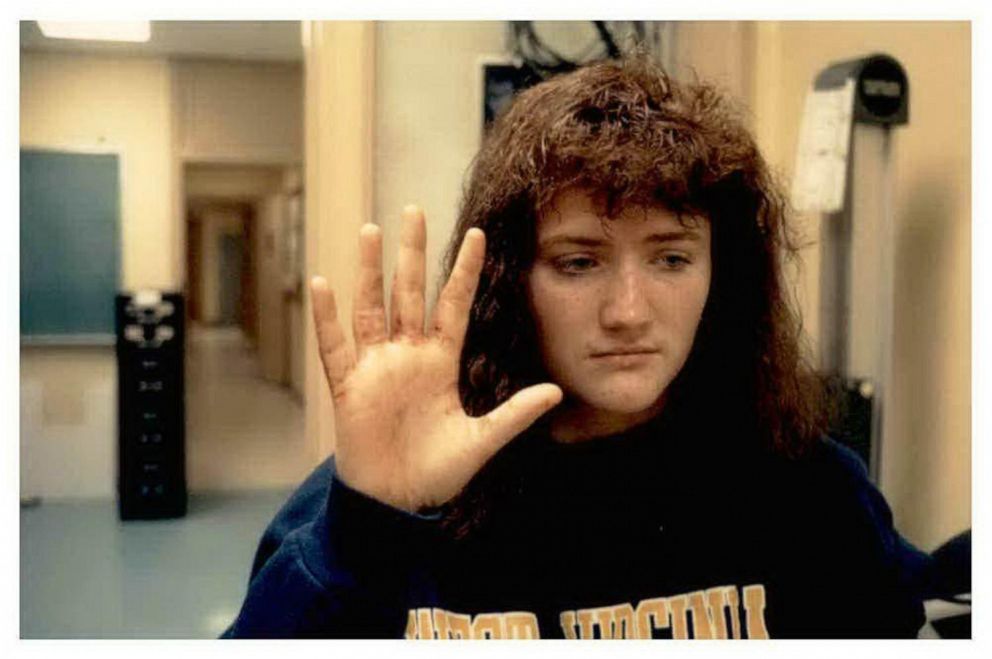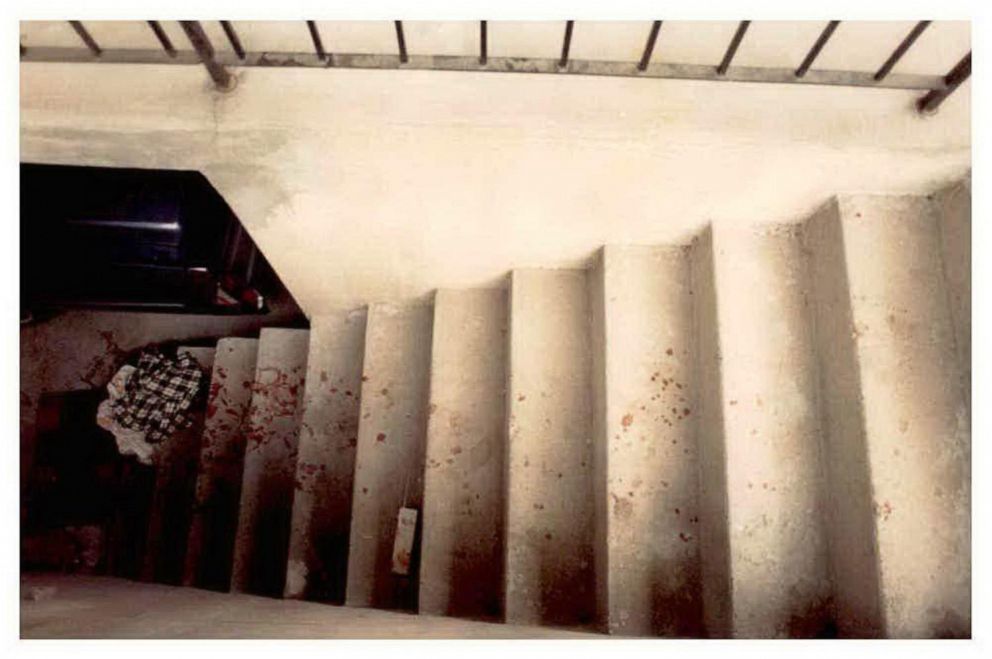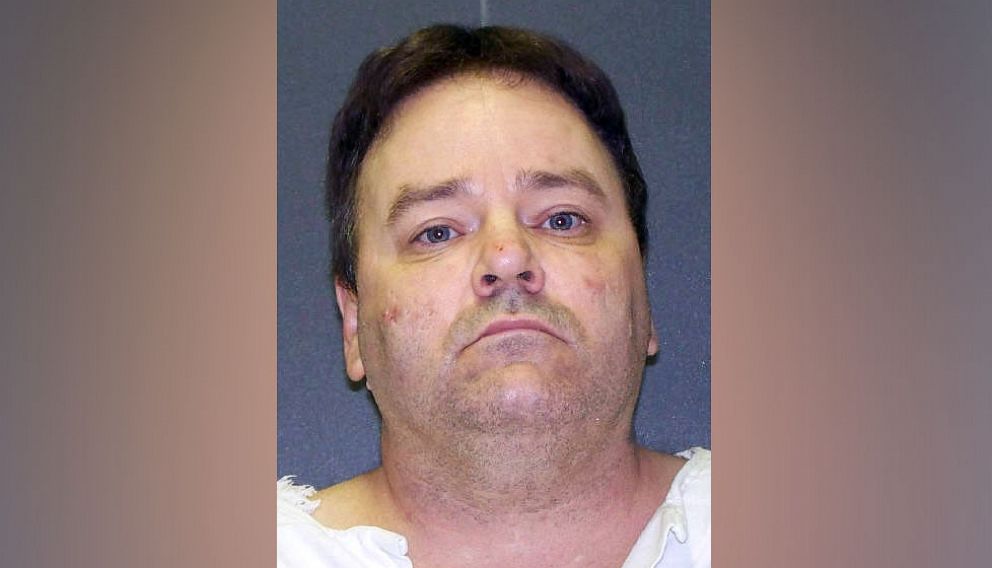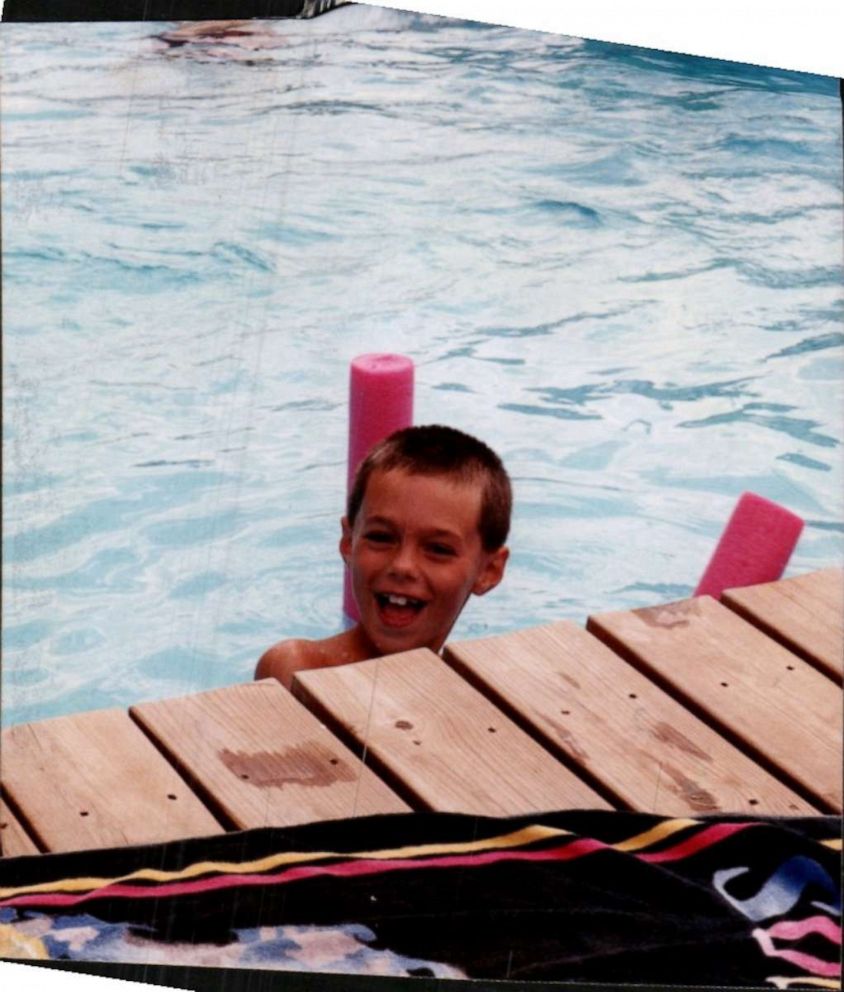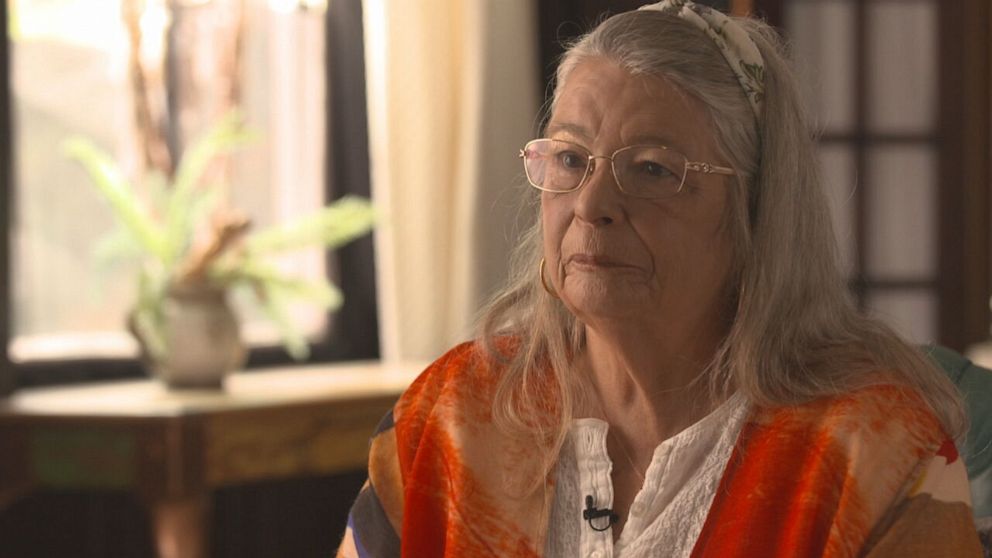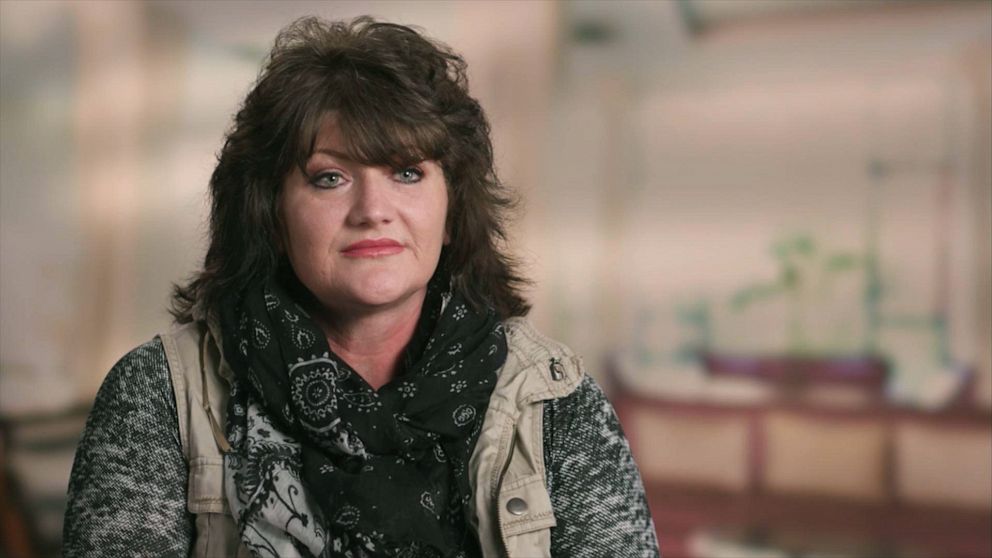Woman details how she survived attack by serial killer Tommy Lynn Sells
Fabienne Witherspoon speaks publicly about the attack in an interview with '20/20,' which airs tonight at 9 p.m. ET on ABC.

CHARLESTON, W.V. -- Fabienne Witherspoon didn't know she had survived a serial killer's attack when it happened, nor that she had seriously injured her attacker in the process.
She was just trying to escape with her life.
"I just wanted to get away, and I didn't realize I had stabbed him," Witherspoon told "20/20." "And it was very, very, very hard to know that I had the capability of hurting someone like that."
The man who had attacked her was Tommy Lynn Sells, a notorious serial killer who has confessed to killing at least 50 people during his murderous spree spanning three decades.
Most of his victims didn't survive his attacks. Witherspoon is believed to be only one of two known survivors.
He had killed before by the time he targeted Witherspoon, and he didn't think this then-19-year-old woman would fight back with so much strength.
Witherspoon is speaking publicly about the attack for the first time in an interview with "20/20," which will air on Friday, Nov. 12 at 9 p.m. ET.
"I always felt if something like that ever happened to me, I would probably just faint. I would just- I would faint and die. I would not fight, but I found out that I was somebody different," she said.
Witherspoon said she was walking to her friend's apartment on May 13, 1992, in Charleston, West Virginia, when she noticed a younger man under the bridge with a sign asking for food and showing her a photo of his wife and children.
She said she felt sympathy toward him and decided to give him food and clothes from her friend's apartment. She asked him to wait outside while she gathered food items from the pantry. That man was Tommy Lynn Sells.
"And I guess while I was doing that, he had come in the house and gotten a knife," Witherspoon said.
Witherspoon said Sells had gotten the knife from the kitchen, locked the door and came up behind her. They were alone in the apartment and she said he told her to do what he said and he wouldn't hurt her. At first, Witherspoon complied. She said he led her to the bathroom, knife still in his hand.
"I just thought, 'Okay, I'll get through this. I'll get through this, and then he'll leave, and then everything will be okay.' But then it came to a point that I was panicking and looking out through the shower," Witherspoon said.
Witherspoon said Sells told her he was going to rape her, and that's when she decided she was going to fight back.
"He had pushed me up against where the toilet was, and I saw on the back of the toilet was a ceramic duck," Witherspoon said. "So I grabbed the duck and I'm thinking in my head, 'In the movies, if you get hit over the head with something, they pass out. They lose consciousness.' So I picked the duck up, and I started repeatedly hitting him over the head with the duck... and he was still standing."
In this struggle, Witherspoon said she managed to get the knife away from Sells and stabbed him repeatedly. An injured Sells grabbed a piano stool and hit Witherspoon with force on her head.
"And then... Ifelt something come crashing down over my head," she said. "And that's the last thing I remember until I came to when the police and ambulance were out front."
Sells tried to get away but his injuries landed him in the ICU and in police custody. Witherspoon sustained significant injuries herself including a gape in her head and a cut in her hand that required surgery.
After this attack, Sells took a plea deal on malicious wounding charges and served five years in prison. At the time, law enforcement did not know that Sells was a serial killer who would strike again, and Witherspoon couldn't do more about his short sentence.
"I felt like it was my fault that he only got five years," Witherspoon said. "I've read ... that after he had his encounter with me, he never wanted to be stuck in that situation again where he could be at jeopardy of being hurt, so he turned to smaller people or children after that."
On Oct. 13, 1997, just four months after his release from prison, 10-year-old Joel Kirkpatrick was murdered in his bedroom in Lawrenceville, Illinois, in the middle of the night.
The boy's mother, Julie Rea, said screams woke her up. She said she ran to her son's bedroom and encountered an intruder with a ski mask on and no sign of Joel. Rea said she struggled with the intruder all the way to the backyard where he backhanded her and walked off into the night. The murder weapon, a steak knife pulled from Rea's kitchen, was left on the floor outside of Joel's bedroom. Rea told police she thought Joel had been kidnapped, but when officers arrived at the house, they found the boy dead on the other side of his bed.
Investigators couldn't find signs of the struggle Rea described at the crime scene. Nothing had been stolen, the house was neat, and there were no signs of forced entry, according to investigators working the case.
Rea, who has always maintained her innocence, was the primary suspect for years. She was indicted on first degree murder charges in 2000. The prosecution presented a largely circumstantial case, focusing on Rea's ex-husband's testimony, pinning Rea's motive on a bitter custody battle, and on the fact that Rea had Joel's blood on her clothes that night. Rea's defense claimed Joel's blood transferred to her clothes during her struggle with the intruder.
"Why would a mother kill her child? We don't know," said Ed Parkinson, who prosecuted the case. "We do know though, that there was a long battle for custody of Joel... and she disliked her ex-husband so much that whether this was to punish him or whether in her own twisted way, she thought Joel would be better off than growing up with her ex-husband."
During Rea's trial, her public defender advised her not to testify.
"[My attorney] told me absolutely not to," Rea told "20/20" in a 2002 interview. "I argued with him about it... and he's like, 'No, no. Our experts have said that Parkinson will... use everything you say and try to twist it around.'"
One of the witnesses her attorney called to testify was her good friend, Dawn Hanzel.
"I was asked to testify in Julie's first trial... [to show] that she had invited me to spend the night there, and why would she invite me to be there if she had planned on killing Joel? It didn't make any sense at all," Hanzel said.
But Rea was convicted of the murder of her son and sentenced to 65 years in prison. Shortly after her conviction, Rea sat down for an interview with "20/20" in which she told her side of the story -- something she didn't get a chance to do at trial.
"The last person in the world I would hurt is my son," Rea said in the 2002 interview. "My son knows I would have never hurt him."
Sitting at home watching Rea's "20/20" interview was Diane Fanning, a true-crime writer, who was finishing a book about Sells. At the time, Sells was on death row for the murder of 13-year-old Katy Harris in Texas.
Fanning said she was taken aback by the prosecutor's claim that an intruder would not break into a house with the intent to kill and not bring a murder weapon as Sells had done that in more than one occasion. Fanning then wrote Sells a letter telling him about the prosecutor's comments.
"I did not tell him the name of the prosecutor, the name of the case, the town where it occurred, the time when it occurred, nothing like that," Fanning said in an interview with "20/20." "Tommy responded by writing, 'About that woman who claimed someone broke into her house was that, like... Maybe on a 13th?' I was shocked because that was exactly when that crime occurred."
"When I read that letter my hands started shaking," Fanning said. "I felt I had justice in my hands and I had to do something."
Fanning said she got in touch with a Texas Ranger who knew Sells well, and based on his letter, believed Sells could have killed the little boy.
In 2003, Sells was interviewed by police and gave a detailed confession to killing a boy and described how a woman tried to fight him off.
According to Bill Clutter, an investigator with the Illinois Innocence Project, Sells recalled details about Joel Kirkpatrick's murder that he would not have known unless he was there.
"There had been corroborating evidence to place [Sells] in Lawrenceville," Fanning said. "When I found out that, then I believed 100% not only in Julie Rae Harper's innocence, but in Tommy Lynn Sells guilt."
Meanwhile, Rea had been in prison for two years when an appellate court ruled to vacate her conviction based on a technicality. But prosecutors decided to retry the case.
Rea, armed with a new defense team through the Center on Wrongful Convictions, used Sells' audio-taped confession at her second trial in 2006. The prosecution, which has always maintained that Rea killed her son, claimed Sells' confession was a fabrication.
She was found not guilty and the state of Illinois granted her a certificate of innocence.
"I just felt like Joelwas right there with me and he was just so happy," Rea said after she heard the verdict. "It was incredible."
Since her exoneration, Rea has become an advocate, working with organizations that help women who feel they have been wrongfully convicted and are fighting to prove their innocence.
Sells was never formally charged for Joel's murder. He was executed in Texas in 2014 through lethal injection.
As Rea was fighting her legal battles, Witherspoon was also discovering that her assault years prior was committed by a serial killer.
"It was a lot to take in," Witherspoon said. "And then I did sort of feel like, at first, like, 'Wow. You did survive. You survived a serial killer. You survive someone who did all these things,' and the more I found out of the horrific things he did to people, the more I had some survivor's guilt and living with the fact that he did start killing children more frequently after me."
Since then, Witherspoon feels if she had fought harder to keep Sells in prison, maybe Joel could have been saved.
"A lot of guilt there, and I know I've been talking to a lot of people, and they say I shouldn't feel that way," Witherspoon said. "I've even had people call me a hero, but I don't feel like a hero."


